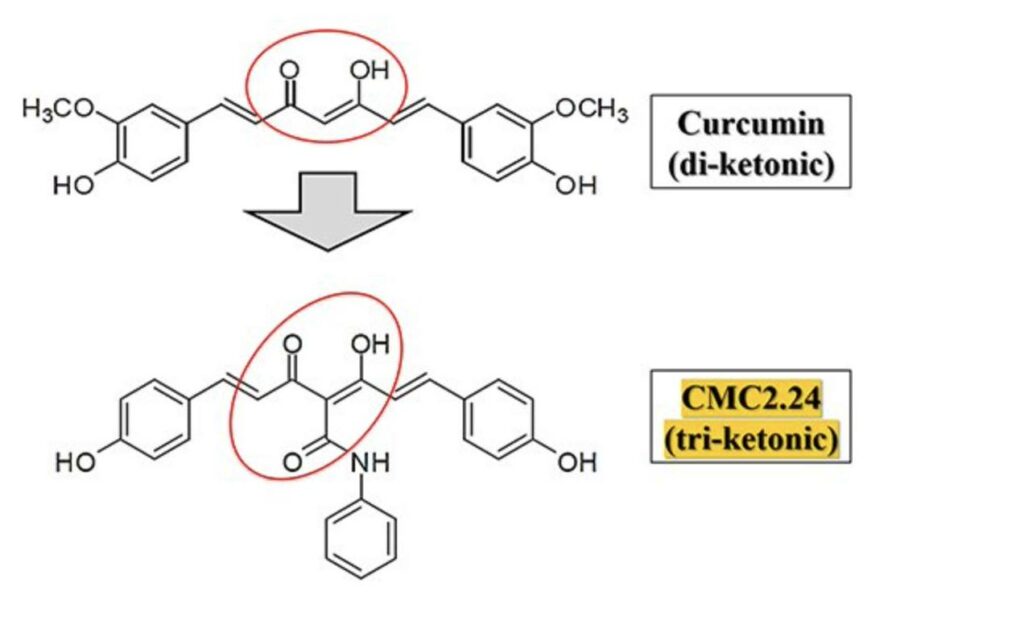CAN CURCUMIN INHIBIT BONE LOSS AND INFLAMMATION?
Periodontitis is a dysbiotic condition initiated and maintained by Gram-negative bacteria present in the dental biofilm. Bacterial antigens, such as lipopolysaccharide (LPS; endotoxin), trigger an immune response, involving production of inflammatory mediators and other factors. As a chronic condition, the sustained excessive production of these inflammatory mediators results in connective tissue breakdown, including resorption of alveolar bone, which is the hallmark of periodontitis
A study done by Muna S. Elburki and his colleagues assessed the effect of a novel chemically modified curcumin (CMC 2.24) on signaling and inflammatory cytokine production in two experimental models of periodontal disease in rats.
Experimental model I: Periodontitis was induced by repeated injections of Lipopolysaccharides into the gingiva (3×/week, 3 weeks); control rats received vehicle injections. CMC2.24, or the vehicle, was administered by daily oral gavage for 4 weeks.
Experimental model II: Diabetes was induced in adult male rats by streptozotocin injection; periodontal breakdown then results as a complication of uncontrolled hyperglycemia. Non-diabetic rats served as controls. CMC2.24, or the vehicle, was administered by oral gavage daily for 3 weeks to the diabetics.
Hemi-maxillae and gingival tissues were harvested, and bone loss was assessed radiographically. Gingival tissues were pooled according to the experimental conditions and processed for the analysis of matrix metalloproteinases (MMPs) and bone-resorptive cytokines.
It was observed that Both LPS and diabetes induced an inflammatory process in the gingival tissues associated with excessive alveolar bone resorption and increased activation of inflammatory cytokine. On the other hand, In both models, the administration of CMC 2.24 produced a marked reduction of inflammatory cytokines and MMPs in the gingival tissues, decreased bone loss, and decreased activation of inflammatory cytokines. Hence, it can be concluded that Inhibition of these cell signaling pathways by this novel tri-ketonic curcuminoid (natural curcumin is di-ketonic) may play a role in its therapeutic efficacy in locally and systemically associated periodontitis.
Citation :
Muna S. Elburki, Carlos RossaJr, Morgana R. Guimarães-Stabili, Hsi-Ming Lee, Fabiana A. Curylofo-Zotti, Francis Johnson, and Lorne M. Golub . A Chemically Modified Curcumin (CMC 2.24) Inhibits Nuclear Factor κB Activation and Inflammatory Bone Loss in Murine Models of LPS-Induced Experimental Periodontitis and Diabetes-Associated Natural Periodontitis. Inflammation, Vol. 40, No. 4, August 2017 (# 2017)


